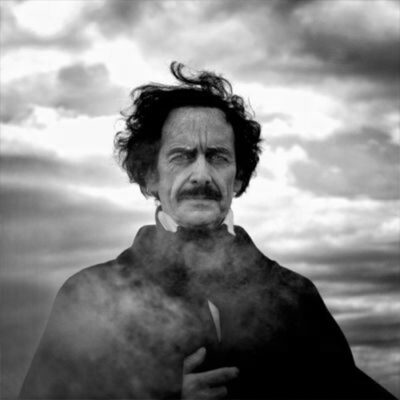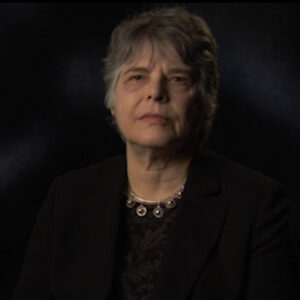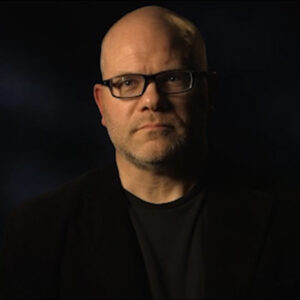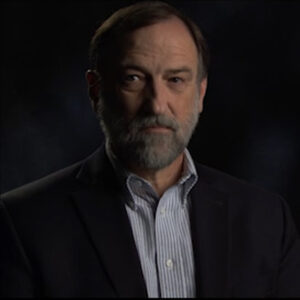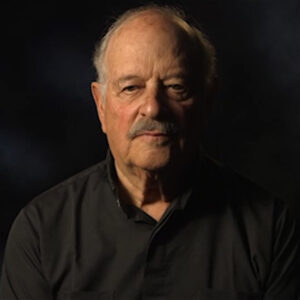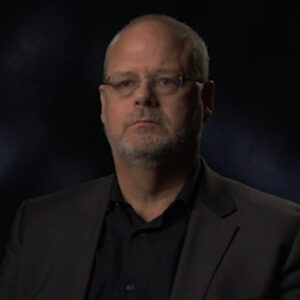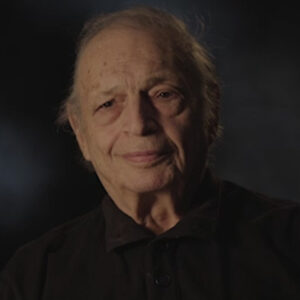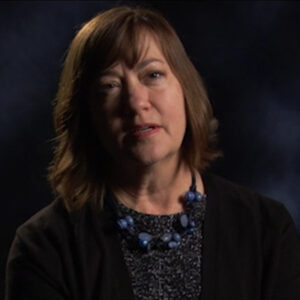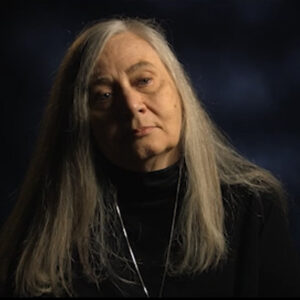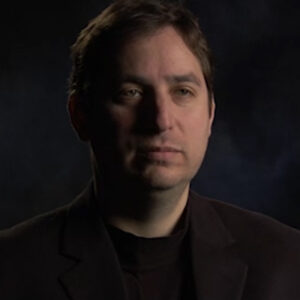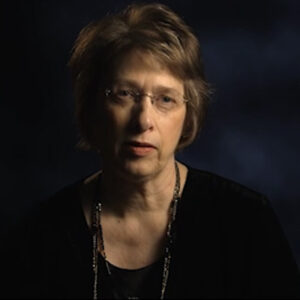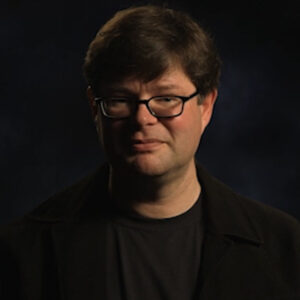Speaker And Paul, why don’t you start by just telling me your name and where you teach in that story.
Speaker So I’m Paul Lewis and I’m professor of English at Boston College. I teach American studies in English at Boston College. Tell me about the Boston theater scene when Paul was born and about his mother’s role in the seventeen nineties when Poe’s grandmother, Elizabeth and his mother Eliza arrived in Boston Theater was still very controversial. There was a law on the books from 1750 banning the creation of professional theater companies, and the law was enforced intermittently in the early years of the 1790 gradually rising group of younger, more entrepreneurial citizens got together and built a theater. And in in the face of great opposition from people like Samuel Adams and Governor John Hancock. Nevertheless, they created this theater. The theater itself was very controversial. People were opposed to it. People were in favor of it. But it was a large theater, held a thousand seats and it was reasonably well attended. So there is obviously an audience for theater at this time. Some people more traditional might have thought of actors and actresses as little better than prostitutes. But others thought this is entertaining, this is delightful. And that was the world into which Poe’s family arrived.
Speaker And talk a little about Eliza. Who was she? Why was she popular?
Speaker She was nine years old when they arrived in Boston. And at that time, she made her American debut singing a song called The Market Glass. She was delightful and charming girl, and she grew to become one of the stars of American theater, especially American musical theater, especially comedy.
Speaker Can you just say that again, exact same thing, but you say I proposed another good point.
Speaker So Alysa Po Po, his mother start start again with you overlap Eric a little bit. Yeah.
Speaker So I did sort to see that, you know, this you should have this for a marriage so the wife can say, you know, you interrupted it. Alysa Po Po’s mother arrives here. Oh wait. So what was the question.
Speaker Good question. To talk about her when she’s already becoming well known in the theater. So just just before I was born. Oh, OK.
Speaker So where had they been before Po was born to.
Speaker OK, so so Alysa Po Po, his mother had been living in Boston for three years and performing at the Federal Street Theater during that time. And in the run up to post birth, she was a star of the American musical comedy theater. Now maybe let me rephrase that a little bit. She was a star of American theater, playing mostly roles in comedies and singing and dancing to the deal. She was someone who could draw an audience and had followers. But of course, it wasn’t the same celebrity culture that we have today.
Speaker And without acknowledging that you mentioned it already, how would she have been seen? By some people? I mean, what was it about being a player? Why was that controversial?
Speaker Of course, once you get into 18 or nine, I’m not so sure the same atmosphere is actually in effect. So I think that’s really a function of the first decade of American theater, especially in Boston, as opposed to like how actors and actresses would have been seen. For all I know, they might have still been seen that way, but I couldn’t really say it.
Speaker But was it still not wasn’t the loftiest kind of profession, right? I mean, wasn’t it still considered a little sketchy, even if not sinful?
Speaker So I imagine that acting and appearing in plays and even writing plays or writing novels would still have been controversial in the early decades of the 19th century. The novel itself was controversial. It was a new form and critics and politicians and social commentators would often sort of shake their head about its negative influence on culture.
Speaker Thanks.
Speaker The impact of Poe’s mother’s death, if you could just talk and again, keeping to his early, early try to imagine what it would have been like for him as a very young child, Poe’s biographers make a good deal of the death of his mother in Richmond, Powys, not three years old at this time, and he’s observing her gradual decline into tuberculosis. They imagine that she dies, coughing blood up onto white nightgowns. They imagine that she died coughing blood up to white nightgowns.
Speaker So I’m assuming that I can start over again and not just give it a second pause before you start. Good idea.
Speaker OK, so they imagine that Lisa would have died over a period of months, gotten sicker, coughing blood up onto white Victorian nightgowns. And that would have watched this wide eyed and the image of his dying mother would fill his stories in women who come back from the dead, the Vagas, the Morella’s, the Lenore’s who constantly appear in his work. But from my point of view, there’s a more important influence that that experience had on people, and that was to shake his confidence about what you could trust in this world. Would there be parents? Would there be people who love you, who would protect you? And I think this haunts him throughout his life. And it leads him to feel that mystery and confusion are guiding principles. They’re sort of the way the world presents it. And it leads him to write horror stories where mysteries are really dangerous, but also detective stories where people can solve the mysteries and hoaxes, where he can pretend to be in control of the mysteries. So it runs right across the genres that he inhabited. And it explains why he could both write horror fiction or detective fiction and then also write stories that made fun of those genres because he could move back and forth across the line of taking them seriously and thinking everything’s a joke.
Speaker Can you talk a little more about that and as it’s sticking to the period when he’s a child older than three in the years after, when he’s taken in by the Allens, and yet, you know, this this the shadow of his mother’s death.
Speaker ASPO is growing up as a child, he encounters various women who become important to him and who then die. So the experience of his mother’s death is something that he relives over and over again up to the climactic death of his wife in the 18 40s. And they all become a motif for him, a theme that he has to deal with this sense of commitment and loss, the unreliable ness of the world. I think it might be the best I can do for that period, but we’ll get others in the track.
Speaker Yeah, so let’s jump ahead. 1827 POWs had many arguments with John Allen and has vowed now to make his own way in the world.
Speaker Where does he come? Why and what happens?
Speaker By the way, am I right that Elizabeth dies before post three? Yeah, I think that’s it’s only two and a half. Three. OK, good. All right. So potentially, after he drops out of the University of Virginia for lack of funding, he moves to Boston. Now, the interesting thing about that is he hasn’t actually lived in Boston between his parents departure back in 1889 and 1827 when post combat power comes back at the age of 18. Why would he choose to come to Boston of all the cities that were possible? He’s a young man. He has no money. He’s starting his life over. Maybe he remembers that his mother, in the one gift that she left to him, a watercolor of Boston Harbor, had written on the back for my little son, Edgar. May he ever love Boston, the place where his mother found her best and most sympathetic friends. So maybe that’s echoing in his mind. And he returns to Boston to start his life as a writer, maybe as an actor, maybe as someone working in publishing. We don’t really know what he worked at, but once he gets here, he writes, finish writing. Once he gets here, he finishes writing his first book and publishes it here. It’s called Tamburlaine and Other Poems. So he really launches his career as a professional writer here in Boston.
Speaker Right. And actually, sorry, one second, boy, we’re recording audio, right, separately. Yes, we’re good, thanks. Because so Tamburlaine, talk a little about Tamerlane.
Speaker What did it look like? How many were printed? What is the voice of the poems? Who is he imitating?
Speaker It’s interesting that Tamerlane and other poems is among the most valuable books ever published in America and also the most unprepossessing. Probably about 50 copies were self published here in Boston. And it looks when you see one of the remaining 11 or 12 copies extant, it looks like a little postcard sized pamphlet without a proper cover, without a proper frontispiece. And it says Tomalin other poems via Bostonian. So it’s clear that Paul wanted to declare his connection to Boston and to use it perhaps as a selling point, as well as the poems themselves were written when Paul was a teenager. Tamerlane is a long poem. It’s voiced by a 14th century warlord who and this does sound more like Poe than a warlord from the 14th century who sacrifices his early love for power and control and who looks back at the end of his life with deep regret about having made that choice earlier on. So it’s about loss and mourning and missed opportunity, the sort of cheerful mix that Paul would go in for throughout his career.
Speaker We have something I’m sorry, let’s countrymen talk a minute about.
Speaker Pose imitation of Byron, what that man. No, don’t do that.
Speaker I probably couldn’t do a good job with it. I mean, I’m not that well read in Tamerlane and other poems. I read it, but it’s horrible. Yeah, I mean, basically.
Speaker So let’s move on. We’re going to have a lot of music on this show and I think we should really nasty.
Speaker All right, OK, let’s just we’ll redo Tamburlaine, what what was Tamburlaine and how did it look and how many sold? And my last little wrap there.
Speaker Yeah.
Speaker So in 1827, when Paul returns to Boston, he sets out to have a career as a professional writer and he produces this little volume called Tamburlaine and other poems, which collects a few works that he’d written as a teenager. He’s only 18 at the time. Tamburlaine, given the fact that it’s one of the most valuable books in American literary history today, a copy having sold for over six hundred eighty thousand dollars the last time it went on the market in 2009. Despite that, it’s actually one of the least impressive looking books you could imagine. Even calling it a book is a distortion.
Speaker It’s actually more like a little postcard sized pamphlet and it does say Tamerlane and other poems by a Bostonian on the cover, just a paper cover, not even a leather cover.
Speaker It’s a Tamburlaine itself. The poem is a long verse narrative spoken in the voice of an 14th century warlord who is looking back on his life at the point of death and regretting the fact that he sacrificed his true love to the drive for power and control early on.
Speaker Good, thanks.
Speaker I did have a funny bit actually in the last version of it where I said that it combined loss and cheerfulness, blah, blah, blah. Never mind.
Speaker Remember now we might as well so. So yeah. What is the voice. And without going too far forward, I say it’s in the first example of themes that would recur.
Speaker Right. So Tamburlaine itself is a dark poem full of mourning, loss, regret looking back at a life not that well spent, the sort of cheerful mix that Paul would work on in many of his other works. That’s not so great, the sort of cheerful mix that Paul would return to over and again in his other stories and poems.
Speaker So jumping ahead to the Southern Literary Messenger is his first real job in literature. What sort of what sort of critic was he becoming and why? And particularly in his attitude toward the Boston writers.
Speaker What was he what identity was he trying to carve out from the early years that he spent in the mid 30s? Writing reviews first for the Southern Literary Messenger poets antagonistic. He was hypercritical. But in writing in that way, he wasn’t all that unusual. English British magazines had established the tradition of reviews that would both praise and then sometimes savagely attack the writer and or book that was being discussed.
Speaker And what what how was he forming an identity or a sort of defensive identity as a Southern writer in that time? And was was that happening then?
Speaker I’m not sure. I mean, he definitely gets into this by the mid 40s. He’s got it in his criticism of Boston writers in the 40s. He returns to the idea that the Bostonians only value New England writers, not even writers as far south as New York.
Speaker We’ll get to that later.
Speaker Trying to yeah, yeah, yeah, I got you, but I’m not sure when that criticism develops, but he did.
Speaker So can you talk a little about how he got this nickname, The Tomahawk Man, during those Southern Literary Messengers?
Speaker And did he are you sure about that?
Speaker I think so. But we can skip ahead of you. Well, I can just I mean, I can talk about the Tomahawk man without dating it too closely. OK, but but it happened fairly early in it.
Speaker Ha. In this critical career, I believe you might be right.
Speaker So Paul earned the reputation and the nickname The Tomahawk Man by writing reviews that went after the person he was reviewing. And he would often start by praising them and talking about their positive qualities. But then he would turn and he would explain in great detail and in great responsible specificity why they were inadequate. And it’s worth noticing that he was doing a great deal of this reviewing. He didn’t just occasionally write a book review. He wrote dozens and dozens of book reviews. He was reading very widely, reviewing all kinds of books. And the criticisms that he made were well deserved. So it’s not as though he was being arbitrary or petulant. He was being a responsible reviewer. And most of the people he reviewed are deservedly forgotten today.
Speaker It’s good to.
Speaker Oh, yeah, oh, that’s the highest slipped out of the day, I know I don’t see it. Oh really? Because you’re going from here. OK, what? I’m going to worry about that.
Speaker So as ASPO becomes this professional magazine and I’m talking about you to New York and Philadelphia, sort of those here, especially in Philadelphia, can you talk a little about his work ethic and his his incredible productivity and what it took to be a writer and how how hard it was to be carving out a living in the world he had chosen?
Speaker It’s widely assumed that Poe didn’t work very hard and that he couldn’t work very hard because he was either an alcoholic or a drug addict. Neither of those is true. He was neither of those is true. He was an incredibly industrious writer in the tough world of commercial publication. He wrote reviews. He wrote poems, he wrote stories, and he edited. And he often didn’t get credit for the editorial work that he did. And he was often paid a salary that you could barely get by on. So in those different cities where Poe was working, he often wondered, you know, where was his next meal coming from? And certainly where was his meal next week coming from? So he’s not a man who ever had much money, never owned much. You can see that in the various houses which are bereft of possessions, no one would ever have thought that anything would be worth preserving. So there’s very little of that left.
Speaker And why was it so hard? It was literature not valued or what was so difficult.
Speaker Very few people before 1850 earned a living writing in America. It was a very difficult time. Writers could not control the republication of their work once they appeared in magazines or periodicals. Paul was paid about ten dollars for the Raven and then it was published all over the country, all over the world eventually. And he never got any more money from it. It might have boosted his lecture fees, but he was never great at generating lectures and making as much money as some other people were doing at the time. And of course, there were economic upturns and downturns, as there are in our time. And, you know, the publishing world was thrown into chaos when that would happen. But just generally speaking, it was difficult to make a living. The exceptions are more interesting than the common rule. Powerful fell into the common poverty. Someone like Longfellow or Washington Irving, Nathaniel Parker, Willis, these were contemporary. Suppose they found a way to thrive in that world. But they were remarkably industrious. They were remarkably entrepreneurial in doing so.
Speaker Great, thank you.
Speaker When did he start developing this antipathy to Boston writers and if you could just sort of within a time frame, keep it to the beginning, beginning of this without mentioning the Longfellow wars or anything, what was happening?
Speaker Well, sort of. That’s when you start to notice that actually not the war is necessary, but as early as his reviews in the late 18th, 30s and 40s.
Speaker OK, so maybe you could say just starting in the late 1930s, we begin to see something from the end of the year, from the late 18th 30s on Poe is meant. From the late 1837, Paul mentions Boston with a certain ironic edge and sort of cocked hat attitude, he’s focusing mainly on Longfellow and it’s clear that he resents and disapproves of the Longfellow’s resents and disapproves of Longfellow’s popularity. He thinks that New England writers only value their own work during an editor’s only publish the work by Bostonian authors for the most part. And he’s critical, therefore, of regionalism, and he’s critical of the didacticism which he sees sort of plaguing Boston writers and the works that they produce. He called it the heresy of the didactic and really slammed just about everyone who wrote in Boston for it.
Speaker And what’s that? That was good, but more all right, so what’s the bigger debate about?
Speaker What are the two different? What are the competing visions of art and literature in their roles?
Speaker For Poe, as a literary theorist and book reviewer, the problem with Boston was that its writers were addicted to didacticism that not only in sermons or in history or in politics, but in poetry and fiction, they were determined to advance their causes. And their causes could be anything as specific as abolitionism or women’s rights or Native American rights or just broad sort of reform of Christianity, reform of the penal system, reform of education. It was a huge reform culture. Give Boston credit for having been ahead of its time in political correctness. On the other hand, from his point of view, why would you write stories with these AVX? Why would you write stories and poems with these obvious moral lessons when people really want to be entertained, when they really want to be powerfully moved, to be shaken by beauty and by horror and by laughter.
Speaker Which leads to another question about can you talk about the tension in power between wanting to be taken very seriously as a highbrow writer and also wanting to be popular?
Speaker And, of course, wanting to sell what? How did that play out in this period?
Speaker Paul talks a lot about unity of effect, but actually his fascination with mystery leads him to move back and forth across the line, separating humor and fear, mystery and confusion in many of his most famous works. If you take a work like the premature burial.
Speaker My favorite story from 1844, it talks about a man who is obsessed with the idea that people in general are very likely to be prematurely buried, buried while they’re still alive, but mistaken for dead. And he spends all of his time reading stories about his news accounts of people who are discovered to have been buried alive. And he becomes all focused on it.
Speaker And then halfway, this story says, you know what? I’ve actually had the experience of being buried alive. And it becomes this personal narrative, which you didn’t realize until then, and it becomes all about his precautions, all the ways in which he tries to avoid being premature burial, tries to avoid being prematurely buried, which he’d be subject to because he suffers from catalepsy, the disease where you look like you’re dead, but then you’re actually still alive. You wake up and you’re in your coffin. So he makes all of these plans. He builds inescapable tomb and escapable coffin and with a bell on top of the tomb, which goes down through a rope to his arm inside the coffin and so on. There’s food. There’s water. If this story took place today, there’d be a flat screen TV inside his tomb. And then he wakes up and thinks, oh, my God, I’ve died somewhere away from my tomb and they’ve just buried me. Actually, he hasn’t been buried alive. He’s just on the ship, which has a lot of it’s a barge carrying dirt, wet dirt down a river. And he’s in a narrow berth. He wakes up and it sort of shakes the experience of waking up there, terrifies him, but it also cures him of his obsession. And so he stops reading stories about premature burial. And at the climax of the story, he says, I stopped reading bugaboo tales such as this. So in this case, the narrator and PO is making fun of the very kind of horror story that he’s also just created. And I think that moment where the story turns on itself and says, I know this is ridiculous, and yet it’s still terrifying. That’s the heart of Poe’s vision.
Speaker What does that say? What does that say about power?
Speaker It says that he always was in control of his material and he had a profound sense of sort of controlling the audience response and making sure that it had the effects on his readers that he wanted.
Speaker Yeah, that’s good, that’s good. I like that story, too.
Speaker I just read it on its wings. And, you know, the last paragraph in it is really stirred up again. Oh, you want to get.
Speaker And then when you think that the premature burial has made fun of its own subject as though this is ridiculous, we shouldn’t worry about this. There’s a final paragraph which twists back again into an acceptance of horror, because what he says is that there are horrible things. We are all going to die and there are things that would make us insane if we face the sheer horror of it. So better to repress that knowledge rather than obsessing about it. But so it’s not ultimately a kind of like, well, they all lived happily ever after. No, we live in a world of great vulnerability, inevitable death, pain, and yet we have to find a way to live in it. And sometimes that involves stepping back and just laughing at the whole thing.
Speaker So a little more about humor po and humor, how does he use humor, how does he juxtapose humor and and how is that different from what other writers were doing at the time?
Speaker Wrote satire? It’s not widely known. He wrote political satire. He wrote social satire, A Boy Too Vain to wear spectacles. So he mistakes his great grandmother for a beautiful young woman and he proposes marriage to her.
Speaker This is the kind of story that people don’t associate with a story about a politician who’s all made up of parts that can be disassembled and has to be put together again to face the public. So political satire, he didn’t do a lot of that kind of work, but he wrote every kind of story and used different kinds of humor. Maybe more typical of the sort of humor that comes up in his story is when something presents itself as a threatening mystery like the Raven, the speaker starts to cope with that. How does he cope with it? Well, first he jokes about it. Gastly Grimm, an ancient raven on the nights Plutonian sure he’s kind of building it up but in a mocking way. But then it turns out that laughing at the Raven doesn’t quite settle it down for him and he moves on to other attempts. Well maybe I can explain it. Yes. This Raven had a previous master who was very depressed and said nevermore all the time. And so this raven got to saying nevermore all the time. So the Speaker’s mind is trying to work through the mystery, but ultimately succumbing to its most horrific implication for him. And I think that’s a way in which humor comes up a lot as a defense mechanism against horrifying mystery.
Speaker Can you think of an example pre raven?
Speaker Only because I’m trying to think where this would land in our film about a place, an example where Poe uses in murder.
Speaker Yeah, I mean, just think about that. And also timing, so.
Speaker It’s more subtle, but I can try. OK, so earlier examples would include stories like the fall of House of Usher and even Lijia, which are thought of as classic horror stories. There’s nothing funny about them. But if you read carefully the description of Lygia early in that story, it goes on for about a paragraph talking about her eyes.
Speaker Her eyes were this, her eyes were that. And a certain point, you know, it’s so excessive, it’s so over the top. That and the same thing could be said of Roderick Usher. He’s so over the top that if you just stop going with the horrific momentum of it all and you think this is ridiculous, if anyone actually talked like this, you’d be laughing about it. And I think that’s always there. It’s always at the edge. And maybe, you know, representations of horror are just in general prone to be a little over the top. I think about all of the movies now that in this same spirit kind of go for horror but end up seeming ridiculous.
Speaker And what was Poe saying about the human condition or about art or about poetry and fear and all those things?
Speaker By doing that, by weaving humor?
Speaker Well, in a sense, it’s the opposite of having a clear way. So I should answer your question by including it. So this mixture of humor and horror in Poe, in a sense, it know, I lost my thought, OK?
Speaker Any minute here.
Speaker So this weaving of humor and horror together in Poe’s work, in a sense, captures a world of great instability. If you’re a frog, Pondy, an author, if you’re a Bostonian writer and you think I can write about subjects that are really horrific, but I can do it in a way to make a clear moral point. And you contrast that with what Poe is doing, which is sort of saying, how do we understand this? The situation is so complicated. It’s so fraught with danger, and yet it’s also ridiculous. Then I think it leads you in a different direction away from that kind of didactic writing in the direction of writing, which has a very visceral effects.
Speaker Great. Thank you. This is good. No, that was that was good. Oh, good, thanks. Now, this is a good time to change. OK, they want water. And I just didn’t ask.
Speaker I was invited to speak lecture in Boston. And what happened?
Speaker Not widely known, but in the early eighteen forties, Paul was very good friends with James Russell Lowell, who is kind of the Bostonian par excellence at Center of a Literary Circle of friends, and Lowell and the Boston Lyceum invited to speak after the rave and came out in New York and was such a big hit.
Speaker And what ensued comes to Boston in October of 1845, invited to speak at the Boston Lyceum to write an original poem for the occasion, for whatever reason, it’s a very tense period in his life. He’s in the process of trying to become the owner of the magazine in New York that he’d been editing. He comes up here right in the middle of that. He can’t write a new poem or he doesn’t write a new poem. He is the second speaker that night at the Boston Lyceum, which probably irked him. The first speaker was the returned ambassador from China who spoke for over two hours. So then they introduced PO, the author of this poem, The Raven. And Poe gets up. And for the first 15 minutes, he insults the audience. He does it. Ironically, he apologizes for not having been able to write the kind of poem that he knows Bostonians would appreciate. And the reason he couldn’t write that kind of poem is that that kind of poem would be didactic and therefore not a poem at all. So having done that, he recite a poem that he’d written in his youth, al-Assaf, which virtually no one understands. And it’s a long poem and the audience is shuffling and moving around. The reviewers the next day say that they left early. The audio out of the audience have denied that ensues. A major exchange between especially one newspaper editor, Cornelia Wells, Walter and Poe. She’s writing in her newspaper, The Boston Evening Transcript. He’s responding in the Broadway Journal, which is editing back in New York. She writes 19 separate comments savaging Poe kind of spelling his name, each with an exclamation point, calling him out.
Speaker And Paul writes these long responses that are hilariously funny. The whole exchange is funny. And I think people miss the humor of it when they take it very, very seriously. Poe, I think, has the sensibility throughout his career as a reviewer that reviewing is a contact sport and that you.
Speaker Wait, and that no publicity is bad publicity, so I think that’s kind of underpinning the controversy, although there are very real issues as well at stake.
Speaker Talk a little about the issues at stake.
Speaker Yeah, so the underlying conflict around the Boston Lyceum affair was not just that Poe defended himself and insulted Cornelia Walters, which he certainly did. He referred to her wig and print and people thought that was pushing it for a man criticizing a woman. But the underlying issues are really about poetry and fiction. What should they do for readers? What are they about? And in the end, I think Poe wins this quarrel with the Bostonians that as time goes on a little bit later, even writers like James Russell Lowell are admitting that probably poetry is not the place for preachy moralism. So by the time of his death in 1849, that’s kind of been given up. And actually, Lowell writes a poem in the first issue of The Atlantic Monthly in which he sort of says, leave the preaching out of your verse, put it into your own life instead. So Paul wins the argument. And I think gradually, in the decades after his death all around the United States, people come to appreciate the kind of excitement he brought to American literature.
Speaker It’s very nice, the Longfellow wars. So what? Why did person go along? What was he after? Why was Longfellow the target and what was the effect?
Speaker Poe famously termed Boston writers and editors Frog Pondy and said he called Boston Fog Pondy after the frog pond on Boston Common. If you stand on the north side of the frog pond, which today is a little skating rink and wading pool for kids, and you look up towards Beacon Street, you see the Nathan Appleton mansion where Longfellow was married, and you get a sense then of what it is that Poe’s animus towards Longfellow was about. I mean, Longfellow is the most celebrated and prosperous writer.
Speaker Sorry, I’m just going to have to ask you to spell out his name.
Speaker Say, Henry Wadsworth, what is the most Henry Wadsworth Longfellow at this time as the most prosperous, successful and adored writer in America? And that’s only going to continue as you move through the decades after Poe’s death, his poem, Evangelion 1847 celebrated as a national treasure. So that’s the way he was looked at. And of course, he was a professor at Harvard. He was a Bostonian par excellence. And poet obviously would have been jealous about all of that success, all of that adoration. He had basically none of that in his career. But he also profoundly disapproved of this sort of writing that Longfellow was doing. He could see that Longfellow was beyond confident that he was even a brilliant diversifier. But he thought that Longfellow didn’t understand what poetry was about, that it had no soul by which Poe meant that instead of going for deep effects of beauty and horror and amusement. Rephrase that, that instead of going for deep effects of beauty and powerful emotions of fear and humor, Longfellow’s settled over and over again for affirming safe ideas. You should be a better Christian. You should have more faith. You should be loyal in your love. Maybe you should never bet the devil your head.
Speaker What’s the impact on people of the Longfellow wars?
Speaker Well, other people are able to talk about this better, I think, because you’re then you’re in his life in the 50s. I think I think many people believe that kind of going off the thing. I think many people think that it didn’t do any good, that he got into these fights, that he really was going after extremely popular people.
Speaker And I mean, I can say this, OK, I think Poe’s biographers generally believe that the Lyceum event was an unfortunate occurrence in Poe’s career, that it damaged his reputation, that he came out seeming like a brawler, maybe even a bully. And, of course, Longfellow was going to win every popularity contest against Poe. So it may actually have damaged his career. He he did not have very productive years in publication between 1845 and when he died four years later, he was writing constantly. He even produced Eureka, his longest book during this time. But he his career did not advance in any commercial or professional sense. And maybe that’s because he had alienated too many people. Nevertheless, the point that he was making about Longfellow was actually valid. He also accused Longfellow of being a plagiarist, which is something that Longfellow biographer Christoph Earnshaw has agreed with most recently. So what he was saying about Longfellow is true. And he predicted that Longfellow’s popularity would not continue as time went on. And you can see by the fact that very few people read and know Longfellow today and everybody knows Poe that in the end he actually wins the conflict that was at stake back at the Boston Lyceum.
Speaker Let me ask you to do that just as a separate piece. Yeah.
Speaker Which is the thing about Edgar Allan Poe actually predicted that Longfellow’s fame would not last.
Speaker And in fact, from early on in the many reviews that Paul would write of Henry Wadsworth Longfellow. In the many reviews that would write about Henry Wadsworth Longfellow, he characterized Longfellow as a plagiarist. He talked about the fact that Longfellow wrote didactic poetry and got that wrong. But he also predicted early on that Longfellow’s popularity would not endure, that he would come to seem uninteresting as writers moved away from this antebellum culture of literary didacticism. And of course, if we follow poet Longfellow out of the 19th century into the 20th century, by the time you get to World War two, there’s a reading public in America that is not drawn to the kind of safe, pious work that Longfellow did. They look around at a world which is much more dangerous, which is much more threatening and much more dark. And they come to see Paul as a figure that represents that world, that understood it before the Times actually caught up with it.
Speaker Great, thank you.
Speaker I got times caught up with a little sketchy, but now I think it will be OK. Yeah, OK.
Speaker You talk about how as a critic and how he how he considered women writers.
Speaker And Margaret Fuller is an example. But women writers in general, it seems that he took women writers more seriously than a lot of other critics.
Speaker And other people will know this better. Well, we can, but I can I can say something about it. And you can get people on it, I think, do a better job with it.
Speaker So in the course of writing his many, many reviews, people often would write about American women authors. And I think for the most part, he took their work seriously because he was a serious book reviewer. He didn’t just write fluff and on. So, for example, he praised Margaret Fuller. He could see that she was actually a genius and he joked with her about it in his review, saying that, well, the one mistake that Margaret Fuller makes is thinking that there are many other Margaret flowers out there in the world, which is not true, but that. Joke assumes that Margaret Thatcher has done something distinguished and impressive, and even though poets certainly have disagreed with her arguments about women’s equality and women’s place in the world, he he had the intellectual honesty to notice that she was making them in a respectable way.
Speaker Good things.
Speaker Let me just go back to skip and skip the soldiers years ago. Yeah, it’s true as a soldier in Boston.
Speaker He was you know, he actually just he enlisted here and then he moved away pretty fast. So he wasn’t really serving as a soldier.
Speaker Vietnam, maybe just for expository reasons, just to see if you could say he arrived here at some point. We don’t know when he enlisted.
Speaker We do know that name is sort of the area.
Speaker Yeah, OK. You know, I think I made a note about the chronology of that.
Speaker And if you could mention that he served for the life, you want me to ask a question, I think I can just get into it.
Speaker So when Paul returns here in April of 1827, he’s 18 years old and after about six or nine or better say, returns to Boston.
Speaker Gotcha.
Speaker Yeah.
Speaker In 1827, when Paul returns to Boston, he. In April of 1827, when Paul returns to Boston, he sets up and starts working, writing, looking into how he can publish after about six weeks and towards the end of May, he enlist in the army and he’ll go on to serve briefly on Castle Island at Fort Independence before he’s shipped out in November to serve in the Carolinas for a much longer time.
Speaker And can you talk about the fact that he enlists under an assumed name and speculate why I can only say that whole thing over about work?
Speaker No, I’m just OK when he enlists instead of using the name Edgar Poe or Edgar OPO, which he might have done. He actually enlists under the name of Edgar A. Perry, a pseudonym. And biographers don’t know exactly why he would have done this. Maybe he was embarrassed to be enlisting as a common soldier in the U.S. Army. He did think of himself sort of a southern aristocrat in some ways. Maybe he was hiding out from a debt collectors. That’s certainly is possible in any case. He goes on to serve briefly here before heading south to the Carolinas.
Speaker What kind of soldier was he?
Speaker You mean how did he behave in the army?
Speaker Yeah, how well did he do?
Speaker And again, I think someone else would say he had he ends up getting caught. He ends up eventually going to West Point to become an officer and then dropping out. But other people will handle that piece of his life better, you know, goodbye. He’s out of Boston. The Army doesn’t work out for him either. And he enlist in the army hoping to ingratiate himself back with John Allen to some extent.
Speaker Yeah, I know that since we’re here in Boston, let’s talk about power in Boston today. So so what has happened?
Speaker And briefly, I know it’s not at all happy to talk briefly.
Speaker Back around the bicentennial, people started to pay more attention to Poe here in Boston, bicentennial of back around the bicentennial of his birth in 2009, an effort was started to celebrate Poe’s connections to Boston. There was a kind of a lingering history coming out of the Lyceum affair. Maybe it’s a long time ago. It’s not that people in Boston haven’t always loved Poe’s work the way they have in other places.
Speaker It’s that there wasn’t much official recognition of it or civic celebration of it. But that changed around the bicentennial when a large group gathered on a really cold night in January 2009 to celebrate that event. And it led to the formation of a foundation that went on to argue for, raise the money for and hire an artist who would actually create and then eventually fabricate and install this permanent memorial to Poe called Paul Returning to Boston by Stephanie Raunak.
Speaker And what’s been the reception since the statue and what do you feel that says about how it’s so exciting how the Rock nānak statue has been received in Boston?
Speaker It’s the center of selfie activity. Dozens and dozens of pictures of people taking their own image next PO arm around his neck, this sort of thing. Whole English classes come visiting Boston and pose around it, all of them broadly smiling. They all know how they know it is Raven is about. They’ve read The Tell-Tale Heart, even if they’re just in eighth grade and they think it’s fun and they’re right.
Speaker Great. Thank you, General.
Speaker More general things which you may or may not feel comfortable. Yeah, Poland alcohol. What’s your take?
Speaker You know, I have just conventional opinions about this, but I think someone else would be more authoritative. I don’t think he was an alcoholic, but I think he couldn’t handle alcohol and he drank more often than his greatest defenders would have said, but less often than his detractors would have said. I think he was drunk some of the time. All right. Well, yeah, there’s someone else. One nail that for you.
Speaker So the impact of Virginia’s death, I mean, if you could just imagine him in that weeks, months, I think you’d better go for someone else on that, too.
Speaker I mean, I don’t think I’d say anything that you wouldn’t say. OK, it was terrible. Mel Brooks, frame of mind. What a death threat. The.
Speaker Why is who the man.
Speaker The the real person so often conflated with characters in his stories or plots in his stories, popular culture, Hollywood operas, whatever, constantly need to. Mix the two together.
Speaker Why is that doesn’t happen with other writers, PO is more often confused with his characters and of course, not all of his characters, only the characters who are doomed and desperate and alcoholic or drug addicted. He’s confused with those characters because his life was in some ways tragic. Not in those ways exactly, but in some ways his life was tragic. He was poor. He was miserable. Much of the time he was haunted by these dead women. He couldn’t get out of his mind. All the winners, the Morella’s, the Bernice’s, the madman ushers who kept coming back. So it’s easy enough to conflate those two things. But we should remember that Poe created many other kinds of characters, like is he also Auguste Dupin, the brilliant detective who solves the mystery and restores order to society? He created Dupin. And in some ways, his work as a writer is more Dupain, like the rational author in control of subject matter, which is highly irrational and intense. So that balance is actually at The Tell-Tale Heart of Poe’s work, but it suggests that he’s not like his most driven, obsessive, irrational characters. I mean, you can’t really write those characters from the outside, even when they’re voicing themselves and their own experience the way Poe does, unless you have kind of objectivity and control. So for me, Poe is much more the artist who was managing this world of irrationality and crime and violence rather than an inhabitant of that world.
Speaker And what did he what has he given to American literature?
Speaker I think Paul gave permission to American culture and American literature to have a good time. Now it’s possible to say that this impulse has run amok in the 21st century. And we certainly have screened zombies who spent their whole lives sitting in front of screens being obsessively fascinated by ridiculously stupid art.
Speaker But that said, I think that life being hard and mysterious and baffling and all the ways that Poe noticed and paid attention to it isn’t a bad thing to be able to enjoy yourself once in a while and go see a movie or read a story or read a poem that just delights you and you think kind of, wow, that was really fun. That was a great diversion. And I think to some extent Poe is about celebrating that and appealing to it anyway as a way of achieving literary success.
Speaker It was very nice. Thanks. Let’s cut for a moment. Yes.
Speaker And sensationalism that for the first time these cities are burgeoning with immigrants and you don’t know who your neighbor is. It could be anybody. And that was reading the headlines, reading the crime stories and figuring out how to use that as material, but also how to how to tap that vein of popular.
Speaker You might get a better quote from Matthew about this, because he’s very interested in how the detective. But I like everything you’re saying. I don’t know that I have anything very different to say.
Speaker So, you know, in the period of around the mystery, the detective story, so that’s the late 18th, 30s and 40s priorities. What’s he recognizing about American society, about this level of anxiety?
Speaker Some of them are set in Europe by Japan’s French. Right. But nevertheless, sure, I can say something about it along the lines of what you just said.
Speaker And you can see whether you get better versions of someone else but on.
Speaker So post so post turned towards the detective story and to a story like the man of the crowd, which is set in London, his detective stories are mostly set in Paris, but he’s clearly responding to appealing to a new American urban culture, which is very aware of crime, as we still are today. It’s very aware of the fact that aware of the fact that you might be living next to someone who you don’t know and who might have malevolent intentions even towards you personally, but just in general, that the urban landscape was dangerous and there was a lot of poverty. There was a lot of class rivalry and competition. There was urban violence. These are all new things on the American scene. How is it paying a good deal of attention to this? Turns towards the detective story. Now, the detective story, of course, is a way of not only drawing on that interest, but regulating it and controlling it so that the crime and the danger don’t seem unstoppable or inexplicable. The detective comes in and even though the police can’t solve it, they’re bumbling. But he, using careful observation and brilliant deduction, gets on top of it and solves the crime partially by entering the mind of the criminal, but then stepping back and using that knowledge to catch the criminal. So that’s the opposite of being overwhelmed by the working urban minds and criminal minds that are out to get you. That’s a way of controlling it, comprehending it and dealing effectively with it. We still like those stories over and over again. And that’s what a police procedural does, isn’t it? It shows us a horrible criminal who wants to destroy and undermine our values. And here come your team of police that you know so well. Bam, they’ve got.
Speaker Really? Yeah, what is it about The Raven?
Speaker The Raven burst into public awareness from its first publication in New York in 1845, and it has delighted readers from that day to this because it has such visceral effects. On the one hand, it is a really creepy poem about an insane man who can’t deal with his grief. He isn’t moving through the five stages of mourning. He’s trapped in inconsolable sorrow that drives itself into his chest like the Ravens speak and it won’t dislodge. So on the one hand, it’s very sad and creepy because he is so crazy and he is so self-destructive, like crazy. And that’s kind of obvious, even though it’s subtle as well. And I think that sense that the reader has oh, I get this. I see how weirdly self-destructive he is. On the one hand, it’s a ridiculous poem, some talking bird coming into a guy’s house.
Speaker On the other hand, the bird is so haunting. It’s so mono.
Speaker The bird is so haunting, it’s so focused in its repetitive terror, bringing inescapable driving of obsession that it has that effect to. So it’s ludicrous. It’s horrifying. It’s right at The Tell-Tale Heart of what Poes about.

